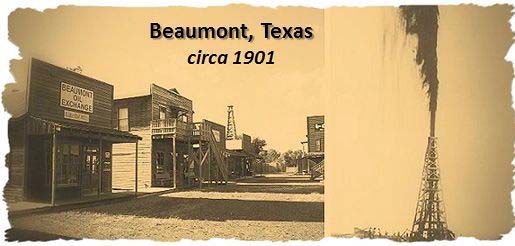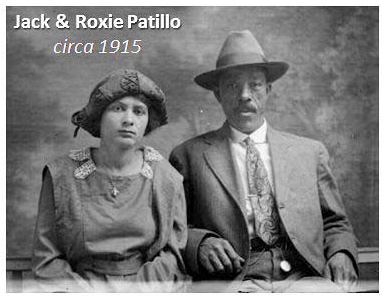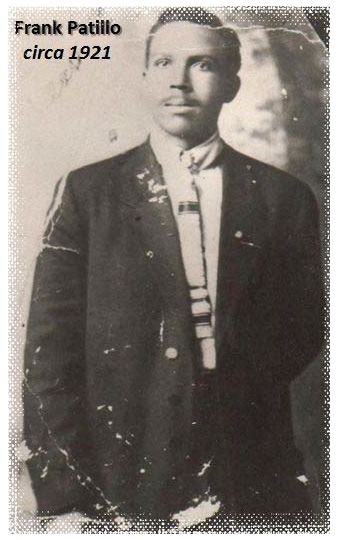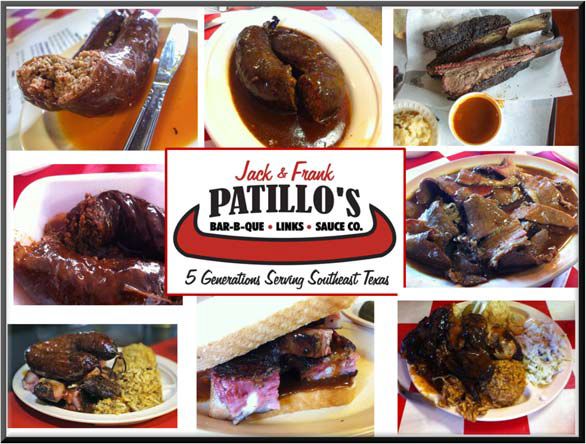
War for the stable confines of Texas in 1862, little did they know how much our family would change the cultural landscape of our newly adopted home. Ultimately settling in Beaumont, where Jackson (known throughout the community as “Jack”) was born in 1863, the Patillo’s took full advantage of the vast tracks of inexpensive fertile farmland and resources this southeast Texas town had to offer. It was against this backdrop, the prudent entrepreneurial Jack availed himself to the opportunities laid in front of him, and became a prosperous real estate mogul by 1900 – making him, his lovely bride Roxie, and our five children one of the most prominent and respected families in the Beaumont community.
 Jack’s favorite hobby was smoke roasting meats and open-pit barbequing, and Beaumont was the ideal place to practice this pleasurable pastime. For it was here in this centrally hubbed port-town strategically-located on the Neches River, that the trade in cattle, lumber, and rice-milling flourished; and gave Old Jack (a mulatto of French-Creole, Native American, African, and Spanish Caribbean descent) perfect access the finest beef, smoking woods, rice and seafood in the country. As such, Jack’s signature Creole-Cajun style barbeque, gumbo, jambalaya, bouillabaisse, and hand-made “Juicy” links became extraordinarily popular among friends and family members in church and social gatherings.
Jack’s favorite hobby was smoke roasting meats and open-pit barbequing, and Beaumont was the ideal place to practice this pleasurable pastime. For it was here in this centrally hubbed port-town strategically-located on the Neches River, that the trade in cattle, lumber, and rice-milling flourished; and gave Old Jack (a mulatto of French-Creole, Native American, African, and Spanish Caribbean descent) perfect access the finest beef, smoking woods, rice and seafood in the country. As such, Jack’s signature Creole-Cajun style barbeque, gumbo, jambalaya, bouillabaisse, and hand-made “Juicy” links became extraordinarily popular among friends and family members in church and social gatherings.
Jack exposed Beaumont to every best-loved culinary contribution the New Orleans immigrant culture brought to bear. And like a Pied Piper of open-pit grilling and smoker cooking, he hypnotized passersby with the heavenly aromas and exquisite tastes of his food. From the French he adopted breads, sweets, and bisque; from the Spanish he added jambalaya (a rice dish most likely derived from Spanish paella); the Germans provided sausages and hot-brown mustard; the Africans contributed okra, barbecue, and deep-fat frying; the Caribbean influence is seen in his bean and rice dishes; and from the West Indies and Haitian smoke pots he served exotic vegetables and cooking methods, such as braising.

All was well with Old Jack until January 10th, 1901, when what came to be known as the Spindletop Hill Lucas Gusher exploded - shooting oil hundreds of feet in the air. The explosion was so intense that nine days later the oil column was still gushing nearly 200 feet high, producing around 100,000 barrels a day.
The Lucas Gusher dramatically displayed the natural resource that lay below Beaumont. In what should have been a fortuitous twist of fate for Jack, who owned good portions of this land, instead turned into a nightmare. Jackson was swindled by an unscrupulous land developer, and under the threat of bodily harm, unjustly forced off of family owned land worth billions today.
Within a few days of the Lucas Gusher explosion, over 40,000 curious sightseers, speculators and jobseekers descended on Beaumont. Restaurants, hotels, and retail establishments were overwhelmed as the city's population grew from 9,000 in January 1901, to 30,000 in March 1901, leading to a Texassized building boom. Strong in our Catholic faith, and never ones to despair, Jack and Roxie (a staunch suffragette and supporter of the temperance movement), capitalized on the growth created by the city’s burgeoning oil economy by developing the remaining portions of our land holdings (mostly relegated to the city’s African-American minority 5th ward region), serving hot meals in our home, and catering meals to Beaumont’s more affluent communities.
Strong in our Catholic faith, and never ones to despair, Jack and Roxie (a staunch suffragette and supporter of the temperance movement), capitalized on the growth created by the city’s burgeoning oil economy by developing the remaining portions of our land holdings (mostly relegated to the city’s African-American minority 5th ward region), serving hot meals in our home, and catering meals to Beaumont’s more affluent communities.

As fate would have it, Jack’s cooking was a sensation and became much in demand over the next 10 years – especially at exclusive clubs and plantation dinners. By 1912, success piqued his interest, and as such, he used his epicurean skills to become the proprietor of a brick and mortar barbeque restaurant registered under the name: PATILLO’S BAR-B-QUE (Lunch & Catering) RESTUARANT®.
Jack would charm guests and flatter the Beaumont influential with the latest in gourmet foods, regional taste trends, and famous blackened Louisiana barbeque until his passing in 1932. Upon his death the restaurant and all the secrets of his recipes were bequeathed to his youngest son and protégée Frank Patillo Sr. Frank the consummate businessman and culinary genius not only expanded the business to three storefront restaurants, but also did what was thought to be impossible – he improved upon Jack’s recipes!
Enthusiasm about experimenting with flavor has always been a hallmark of French cooking, and truly was Frank Patillo’s forte. Success was met when he masterfully infused many of Jack’s Creole-Cajun dishes with the herbs and spices found in Tex-Mex cuisine. Tex-Mex, which was non-present in Louisiana cooking, derives from combining the words "Texan" and "Mexican." It originated with the Texans of Hispanic descent or Tejanos, as a hybrid of Spanish and Mexican Indian foods and refers to an amalgam of Northern Mexican peasant food, with Texas farm and cowboy fare. Characterized by its heavy use of meat (particularly beef), beans and spices, it was only natural that Frank search for ways to incorporate this cuisine into his menu.
With Gusto & Pride


